EV Vehicles In the Cold - FUD Debunked
There's been quite a bit of FUD against EVS lately due to cold weather, difficulties charging, and range loss. However, EVs can perform fine in the cold and aren't the bad vehicles they are being made out to be.
Some of the more popular articles from TorqueNews on this matter are:
- Teslas in Tundra Time: Don't Let Winter Chill Your Electric Dreams
- Tesla Model 3 Sub-Zero Road Range Test Results in the Real World
- Charging a Deep Frozen Tesla
In a recent video interview on CNBC, Sawyer Merritt, who is a popular account on X for Tesla, shared his thoughts about Tesla, debunking the FUD and myths about EVs in the cold.
The interviewer said everybody is freaking out and that we have to better educate owners and drivers of EVs on how to prime and preheat their batteries as well as operate in cold conditions.
Crimson Chrome - High Gloss Metallic Red Cybertruck Wrap Ups the Wrap Wars Gamehttps://t.co/RQqiJ56qEJ$TSLA @Tesla @torquenewsauto #cybertruck #wrapwars #crimsonchrome #highglossmetallicred
— Jeremy Noel Johnson (@AGuyOnlineHere) January 17, 2024
Sawyer had this to say in response:
It's true - in general, it's not true that EVs can't perform well in winter. The U.S. Energy Department actually says a conventional gasoline car's gas mileage is 20% lower at 20 degrees -vs- 77 degrees (Fahrenheit). So, some winter efficiency loss isn't unique to EVs in general.
But, I've driven a Tesla Model Y with the ambient air temperature outside roughly at minus 22 degrees and it was fine. 82% of new car sales actually in cold Norway last year were all EVs.
Consumers do need to know which ones are best suited to cold weather. Tesla's for example have a custom designed heat pump that actually draws excess heat from the power train to maximize Supercharging speeds and driving range in cold weather. I just think that in general, EV education is important and people should pre-condition their Tesla's battery before arriving at the Supercharger and check beforehand that the Supercharger is actually available.
You May Also Be Interested In: Is the Cybertruck Coming To China? Rumor Says Cybertruck Is Coming to China As A Store Display
More FUD Debunked
The interviewer asked Sawyer about the charging infrastructure and said that some people are probably not realizing that some chargers are Level 2 chargers and slower in the bad weather.
The Level 2 chargers I've used are just fine in hot, cold, or bad weather - they charge at the exact same speed. Because the charging is slow, even a cold battery can handle it, so the CNBC interviewer misspoke in that case.
The interviewer said that this goes to the car companies, whether it is Tesla, Rivian, Ford, or GM, to better educate the buyers or potential buyers on how to operate the EVs. Otherwise, you get ticked off people who sell their vehicles on cars.com after 5,000 miles.
I agree with the interviewer on the EV education part - they are different "animals" than conventional gas cars. They use batteries and have kWh as energy storage instead of gallons of gas, and they have kWh/mile or Wh/mile as energy used instead of miles per gallon.
Mr. Beast Posts FIRST Video On X - Showing a $100,000 Tesla Model X Plaid Driving Itself and a $100,000,000 Million Carhttps://t.co/52mBrse4jO$TSLA @Tesla @torquenewsauto @MrBeast #cars #evs #gascars #classiccars #flyingcars #boatcars
— Jeremy Noel Johnson (@AGuyOnlineHere) January 16, 2024
Sawyer responded to these statements by saying:
You are absolutely right, there is an important distinction between Tesla's Supercharger network, which has over 55,000 stalls worldwide and growing, and non Tesla Supercharger networks.
Tesla's Supercharger network has an uptime of roughly 99.95%, I believe, but not many people know that because if you look at the mainstream media news, you see these headlines of EV chargers not working. These are really rare circumstances. These are not common circumstances. We even saw some news articles in recent days about some gas pumps freezing up in Canada. Cold weather like this is just going to affect everything no matter what.
The interviewer said that, especially when it's negative 30 degrees. He saw the pictures of people in the cold and wondered why people were out when it was that cold and that they should stay in and make a roaring fire.
The reality is that in recent days, EVs have been getting slammed because they are a threat to gas cars and if gas cars get replaced by EVs, there's going to be some people who lose money and power in the world who own and are involved with companies making gas cars.
Are EVs perfect? No, they are not - but they are a step up from gas cars, just like gas cars were a step up from the hose and buggy. That's my personal opinion.
However, what matters is what you think - which do you think is superior, a gas car or EV?
In Other Tesla News: Endless Stream of Tesla's Continuously Going Through Boring Tunnel Loop at Las Vegas
What do you think about this interview with Sawyer Merritt? Were the things he said about EVs right?
Share this article with friends and family and on social media - or leave a comment below. You can view my most recent articles here for further reading. I am also on X/Twitter where I post more than just articles daily, as well as LinkedIn! Thank you so much for your support!
Go @SawyerMerritt on CNBC! 👏 pic.twitter.com/uiy2BjW1GS
— Teslaconomics (@Teslaconomics) January 18, 2024
Hi! I'm Jeremy Noel Johnson, and I am a Tesla investor and supporter and own a 2022 Model 3 RWD EV and I don't have range anxiety :). I enjoy bringing you breaking Tesla news as well as anything about Tesla or other EV companies I can find, like Aptera. Other interests of mine are AI, Tesla Energy and the Tesla Bot! You can follow me on X.COM or LinkedIn to stay in touch and follow my Tesla and EV news coverage.
Image Credit & Article Reference: Teslaconomics showing CNBC interview with Sawyer Merritt
Set Torque News as Preferred Source on Google


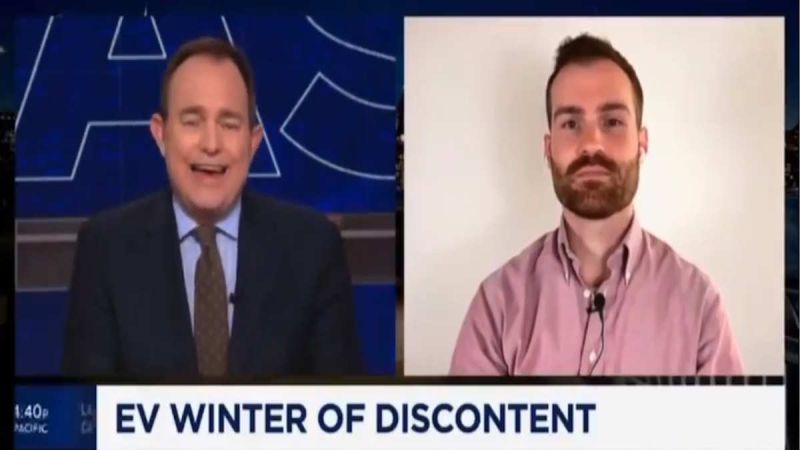




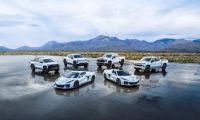
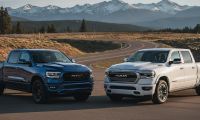
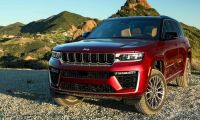
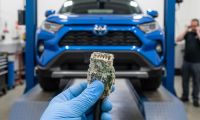
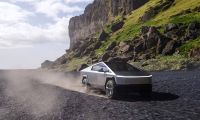
Comments
Tesla at least the model 3…
Permalink
Tesla at least the model 3 does lose range in the winter. The heatpump draws heat from the drivetrain, but that is pointless when you have not driven the EV for a while, like over night. Unless you park it indoors in a heated space. We also barely have any chargers around us and have electrical shortages from time to time. At least with gassers, I have a second source of energy and when the grid goes down, I can get food and function. I also use natural gas at home, which I use when the power is out for cooking and heating. That energy redundancy is important for everything we depend on, including transport.
I chalk all this EV…
Permalink
I chalk all this EV positivity up to just another virtue signal. Where I am, there are no electrical infrastructure expansions to account for increasing electrification - zero new power plants coming online, in fact, some coal and nuclear going offline. I have seen a total of 2 (slow) chargers on a downtown street. Yet we have lots of top-down direction to electrify.
Comparing EVs to ICEVs, by comparing ICEVs to horses is silly and misleading - what intrinsic qualities are comparable in this sense? ICEVs use a eneregy denser source of fuel than steam trains, which uses a denser source of fuel than horses. EVs is a regression - battery energy density is far short of gasoline and diesel. Winter mileage reductions in ICEVs is mainly due to the use of winter gas - what's the equivalent of that in EVs? You are not forced to use winterized gas, either. EVs lose milage in the winter because of intrinsic chemical reasons in the battery. ICEVs lose milage in the winter because of precautionary measures. I have never heard of people more afraid of range loss in gas or diesel cars, in fact, the distances between gas stations work just fine summer or winter.
I will know they are serious when they start mass constructing power plants like China and build charging infrastructure everywhere to replace gas stations. The situation is much worse in rural and small communities, where personal transport really matters. Until that happens, my advice is not to take EVs seriously.